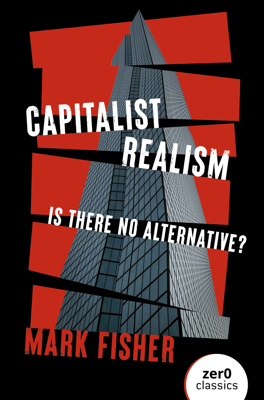What if You Held a Protest and Everyone Came?
The Paradox of Capitalist Anti-Capitalism
The chapter delves into the complex relationship between capitalism and anti-capitalism, demonstrating that capitalist realism incorporates and ultimately reinforces anti-capitalist sentiment. The example of Disney/Pixar’s Wall-E is used to illustrate how mass media portrays anti-capitalist themes under the guise of entertainment, without threatening the capitalist structure itself. This mimics anti-capitalism by utilizing the concept of "interpassivity"—where the movie performs anti-capitalist critique on behalf of the audience, allowing them to consume with minimal guilt.
Critique of Ideological Fantasy and Belief
Slavoj Žižek's analysis is central in exploring how capitalist ideology operates not through overt propositions but through an overvaluation of subjective belief. This creates a detachment where individuals, by internally denouncing capitalism, feel exonerated to freely participate in capitalist economics. Žižek articulates this through his distinction between subjective belief and the externalization of such beliefs in behavior, pointing out the irony in our cynical distance that actually sustains capitalism.
Examination of the Anti-Capitalist Movement
The narrative critically evaluates the anti-capitalist movement's failure to propose a viable alternative to capitalism, suggesting that their actions may inadvertently uphold the system they oppose. The discussion highlights how movements like Live 8 engage in what appears to be substantial advocacy but ultimately play into capitalist frameworks by failing to challenge systemic structures, instead making extravagant demands without expectation of real change.
Capital as an Abstract Parasite
The text also provides a metaphorical depiction of capitalism as an "abstract parasite" and a vampire, emphasizing that while it seems like a distant entity, it thrives on the very participation of individuals it exploits. It suggests a critical consciousness of one's role and complicity in this system as essential to any genuine form of resistance.
The Complicity of Consumerism in Capitalist Ideology
Lastly, the critique scrutinizes initiatives like Bono's Product Red which propose to fight systemic issues through consumerism. It challenges the notion that capitalist consumption might be a solution to its own excesses, stressing that such actions obscure the need for structural changes and instead offer a sanitized conscience through 'ethical consumption.'
Overall, the chapter argues that capitalist realism is so entrenched that even opposition often ends up reinforcing the very system it aims to critique, with true resistance requiring a profound acknowledgment of individual and collective complicity in perpetuating capitalist structures.
